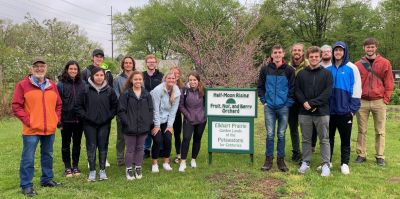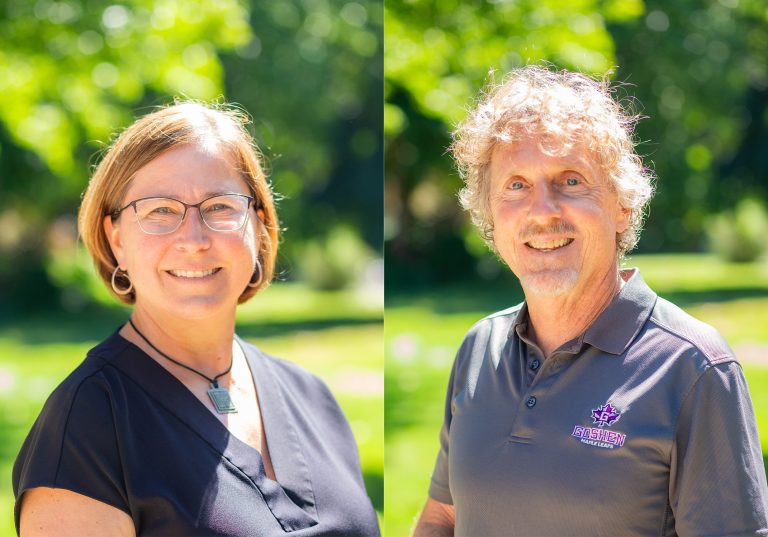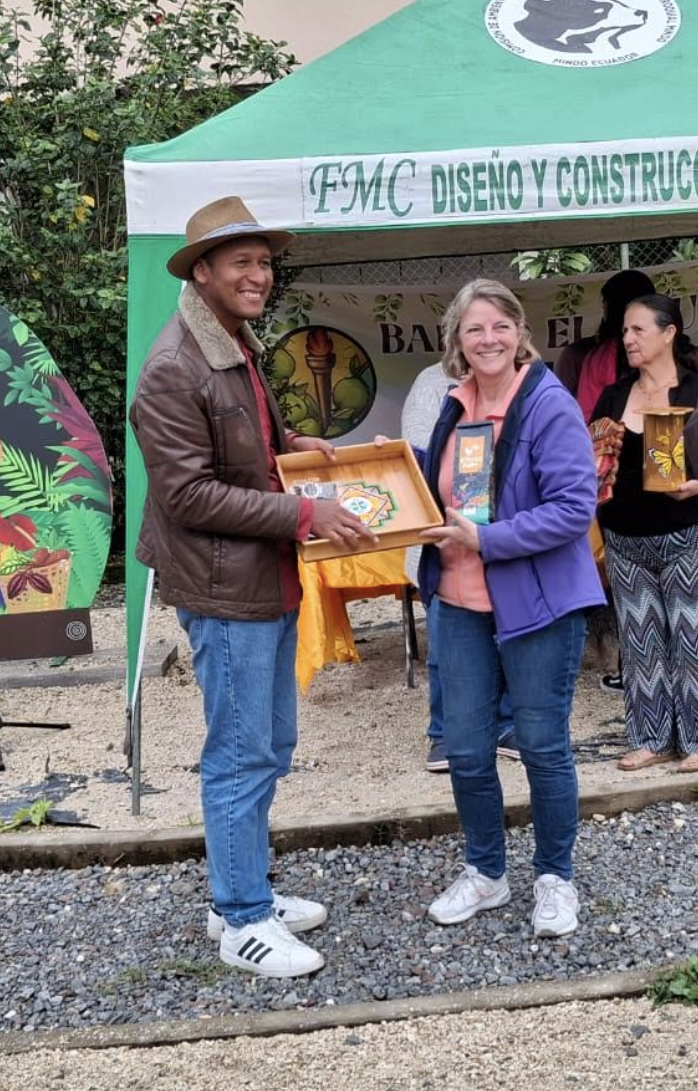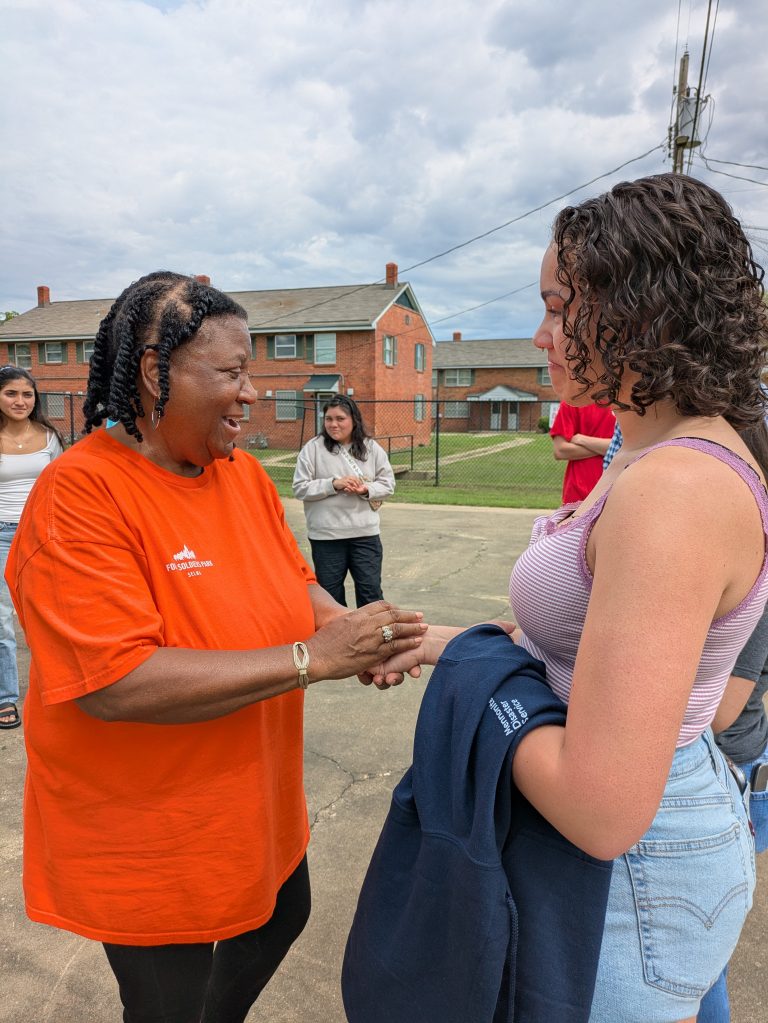Goshen College’s “SST for all” makes global education more accessible with flexible study options at home and abroad.

News
Land and the Doctrine of Discovery
May 03 2021
Ben Zimmerman is the author of today’s blog post. Ben is a senior Sustainability Management major from Archbold, Ohio.
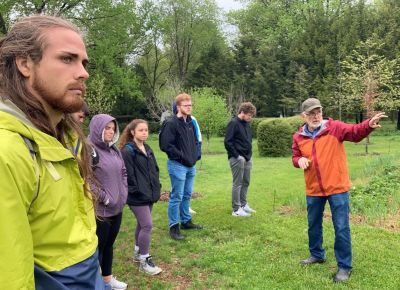 May has finally arrived as spring is in full bloom here in Goshen. We started the week off with a leisurely walk through the rain down the Winona Interurban Trail to see our guest speaker for the day, Luke Gascho. Luke is the recently retired former long-term director of Goshen College’s Merry Lea Environmental Learning Center. He now lives in Goshen on a two-and-a-half-acre plot of land just down the road from the college. Luke and his wife have taken their land and turned it into a beautiful urban farm that is home to all sorts of different plants, native and non-native, that produce a variety of produce, nuts, berries, fruit, et. Towards the end of our time, he graciously gave us a brief tour of the many intricate and fascinating parts of his little farm in the city.
May has finally arrived as spring is in full bloom here in Goshen. We started the week off with a leisurely walk through the rain down the Winona Interurban Trail to see our guest speaker for the day, Luke Gascho. Luke is the recently retired former long-term director of Goshen College’s Merry Lea Environmental Learning Center. He now lives in Goshen on a two-and-a-half-acre plot of land just down the road from the college. Luke and his wife have taken their land and turned it into a beautiful urban farm that is home to all sorts of different plants, native and non-native, that produce a variety of produce, nuts, berries, fruit, et. Towards the end of our time, he graciously gave us a brief tour of the many intricate and fascinating parts of his little farm in the city.
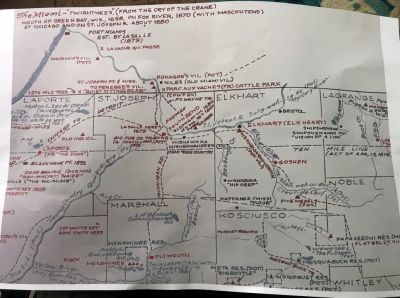 The majority of our time, however, was spent sitting outside on Luke’s patio and listening and chatting about the importance of land and the doctrine of discovery. We discussed the history of the people in this area before and after settlers arrived. Luke told us how indigenous communities viewed the land and everything in it as kin, and therefore, this settler concept of ownership was very strange to them. This idea of land as kin is something I had never really thought about before, but he really emphasized this point to us. If the land is our relation who really owns it? Sadly, over time, the native people were pushed off these lands which was largely enabled by the doctrine of discovery. Part of this doctrine includes the term terra nullis, which essentially means that if settlers come to an area and the people here are not Christian, they can consider the land empty and theirs for the taking. The Doctrine of Discovery used this idea of terra nullis and the idea that anyone who is not Christian is subhuman to justify the stealing of these traditional indigenous lands.
The majority of our time, however, was spent sitting outside on Luke’s patio and listening and chatting about the importance of land and the doctrine of discovery. We discussed the history of the people in this area before and after settlers arrived. Luke told us how indigenous communities viewed the land and everything in it as kin, and therefore, this settler concept of ownership was very strange to them. This idea of land as kin is something I had never really thought about before, but he really emphasized this point to us. If the land is our relation who really owns it? Sadly, over time, the native people were pushed off these lands which was largely enabled by the doctrine of discovery. Part of this doctrine includes the term terra nullis, which essentially means that if settlers come to an area and the people here are not Christian, they can consider the land empty and theirs for the taking. The Doctrine of Discovery used this idea of terra nullis and the idea that anyone who is not Christian is subhuman to justify the stealing of these traditional indigenous lands.
The doctrine of discovery is still used even to this day as justification and precedent for land ownership. There is a movement currently within the Mennonite Community, among others, working to dismantle the doctrine of discovery. Luke told us that we cannot change the past injustices but challenged us rather to focus on repairing and restoring relations and other meaningful actions we can take. So that leaves the question then to all of us — what can we do in our own areas and communities for a more just and equitable future for all?
